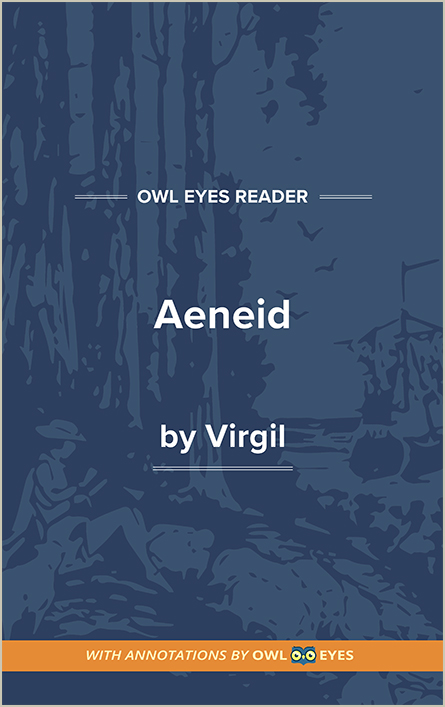Study Guide
Analysis Pages
Virgil Biography
Publius Vergilius Maro, known as Vergil (VUR-juhl), author of one of the most familiar epics in all literature, was born in the village of Andes, in what is today northern Italy, on October 15, 70 b.c.e., only a few decades before the end of the Golden Age of the Roman Republic. It is claimed that his father was a potter who, through hard work and an advantageous marriage, had become a landowner prosperous enough to give his son a superior education. The youth studied under eminent teachers at Cremona and Milan and under the Greek poet and grammarian Parthenius at Naples. At the age of twenty-three Vergil went to Rome to study not only poetry and philosophy but also mathematics and physics under Siro the Epicurean, whose philosophy affected Vergil and his writings throughout his life.{$S[A]Maro, Publius Vergilius;Vergil}{$S[A]Publius Vergilius Maro;Vergil}
Although he was a shy, rustic, and slow-spoken youth, his personal charm and the literary ability evident in his early poems won Vergil the friendship of some of the most cultivated and powerful men in Rome, among them Octavian, Maecenas, Pollio, Horace, and Cornelius Gallus. His popularity was such that in 41 b.c.e., when his farm was threatened with seizure, along with surrounding territories to be divided among the victorious soldiers of the triumvirs returning from the battle of Philippi, his friends were able to intercede at Rome to have it saved. Despite his popularity in the capital, however, Vergil spent much time in retirement on his beloved farm, studying Greek and Roman history and literature.
With the encouragement of his friend Asinius Pollio, Vergil continued work on the Eclogues, which were begun around 43 (some scholars say 45) and finally completed about 37 b.c.e. These idyllic pastoral poems were based on the Idylls of the third century b.c.e. Sicilian poet Theocritus. The setting, structure, and language of the Eclogues are highly imitative, but their greater complexity and artificiality reflect a wider range of observation and the background of a more highly developed civilization. They are also original in their extensive use of allegory and their many laudatory references to the author’s friends.
After the publication of the Eclogues, Vergil took up residence at a country estate near Naples, where he spent most of the rest of his life. It was there that he wrote the Georgics, a didactic poem in four books on the subject of husbandry. Written at the request of Maecenas, who wished to revive an interest in the old Roman virtues of industry and a fondness for rustic life, the poems are considered to be the most technically polished and elaborate of all Vergil’s work. Unlike the rather dry, strictly didactic Works and Days (c. 700 b.c.e.) of the Greek poet Hesiod, on which they were based, the Georgics were obviously never intended to teach the specific techniques of successful agriculture to anyone who did not know them already. What they aimed to do, and did most successfully, was to interest the reader in the lost art of agriculture by making it attractive and interesting to him. This the author did by means of graceful language, imaginative imagery, concrete illustrations, and digressions on various subjects which added much to the charm, if not to the unity, of the work.
Vergil was forty-one years old before he embarked on his lifelong ambition, the composition of a Homeric epic which would...
(The entire page is 866 words.)
Owl Eyes subscribers get unlimited access to our expert annotations, analyses, and study guides on your favorite texts. Master the classics for less than $5/month!

